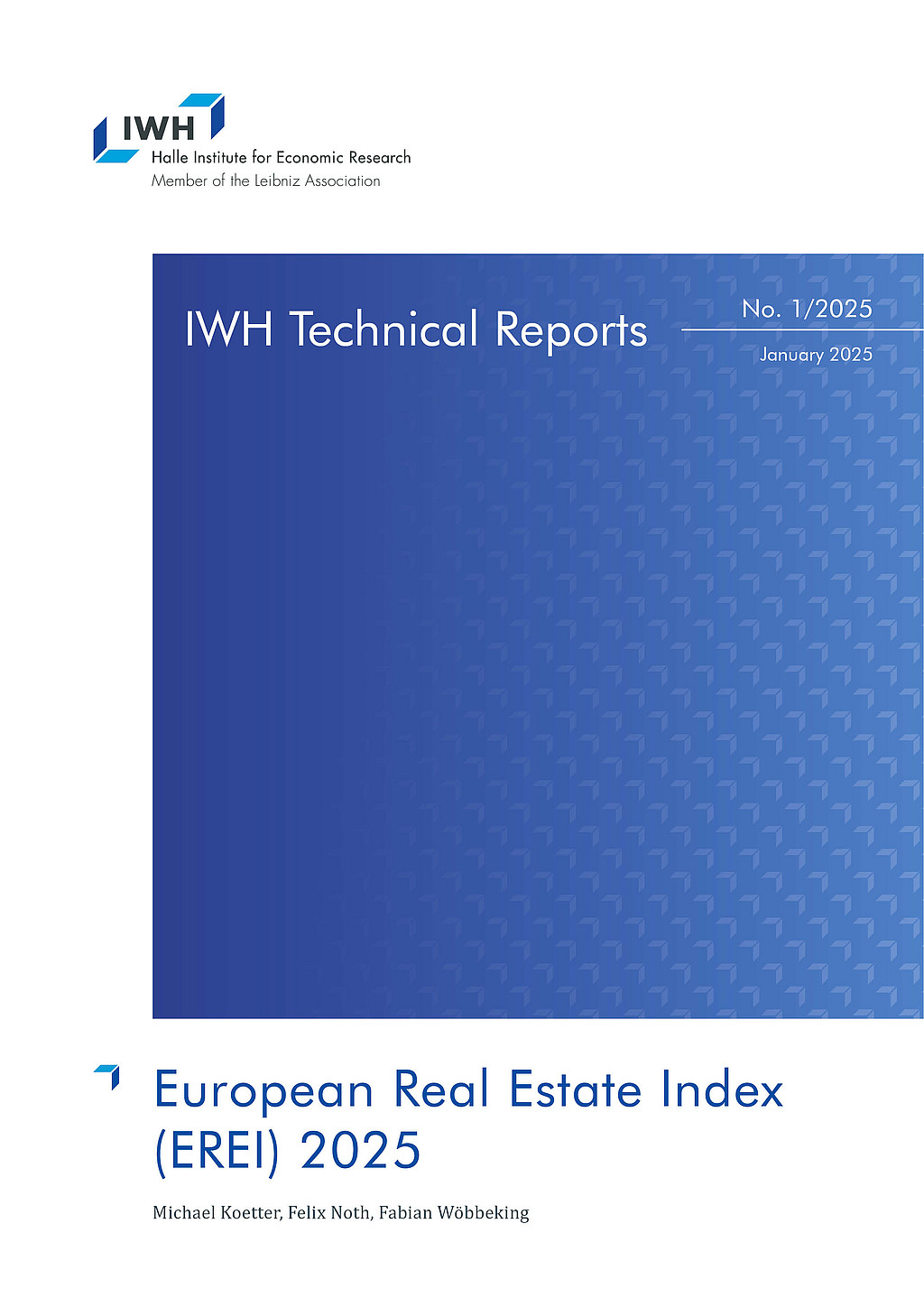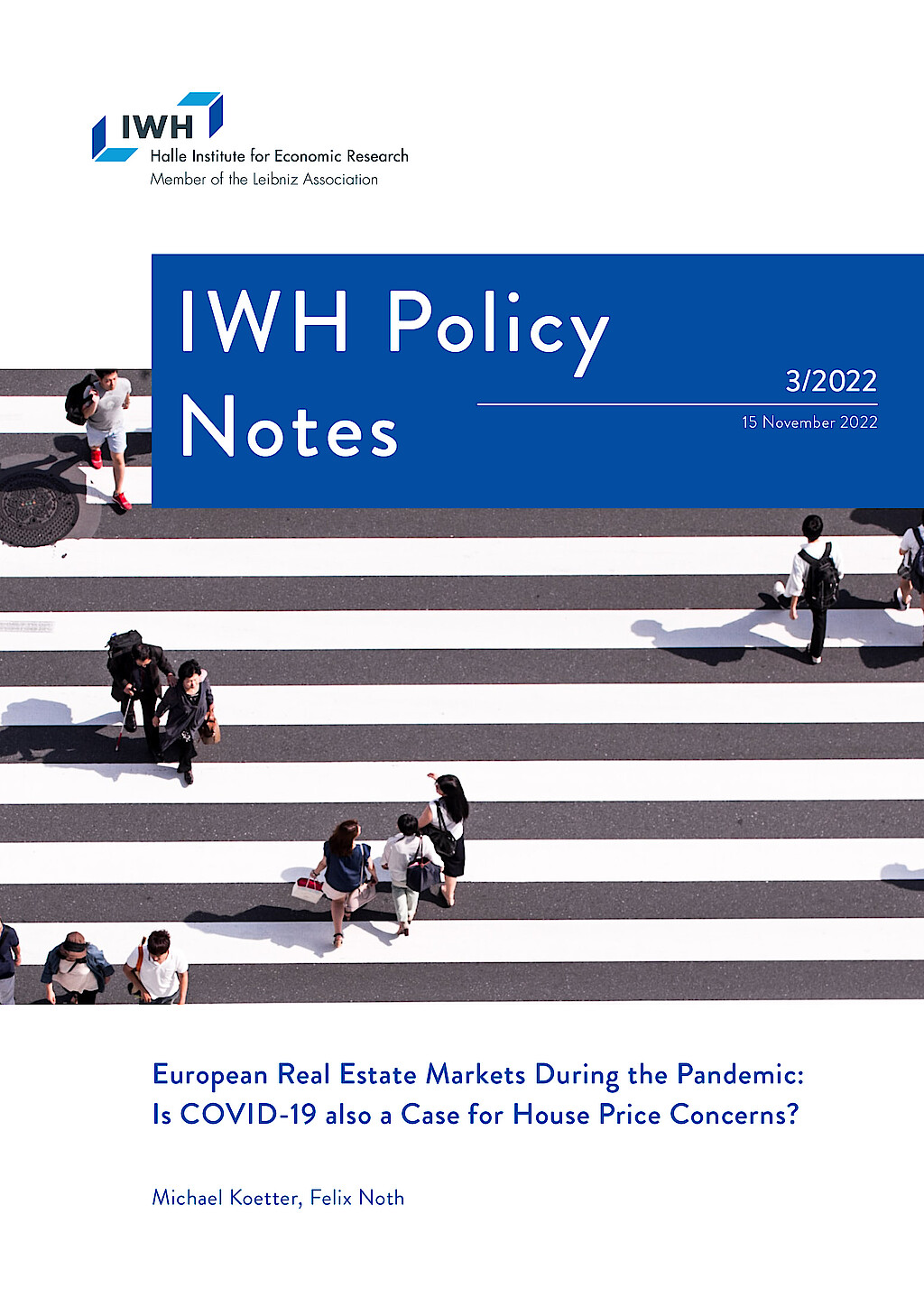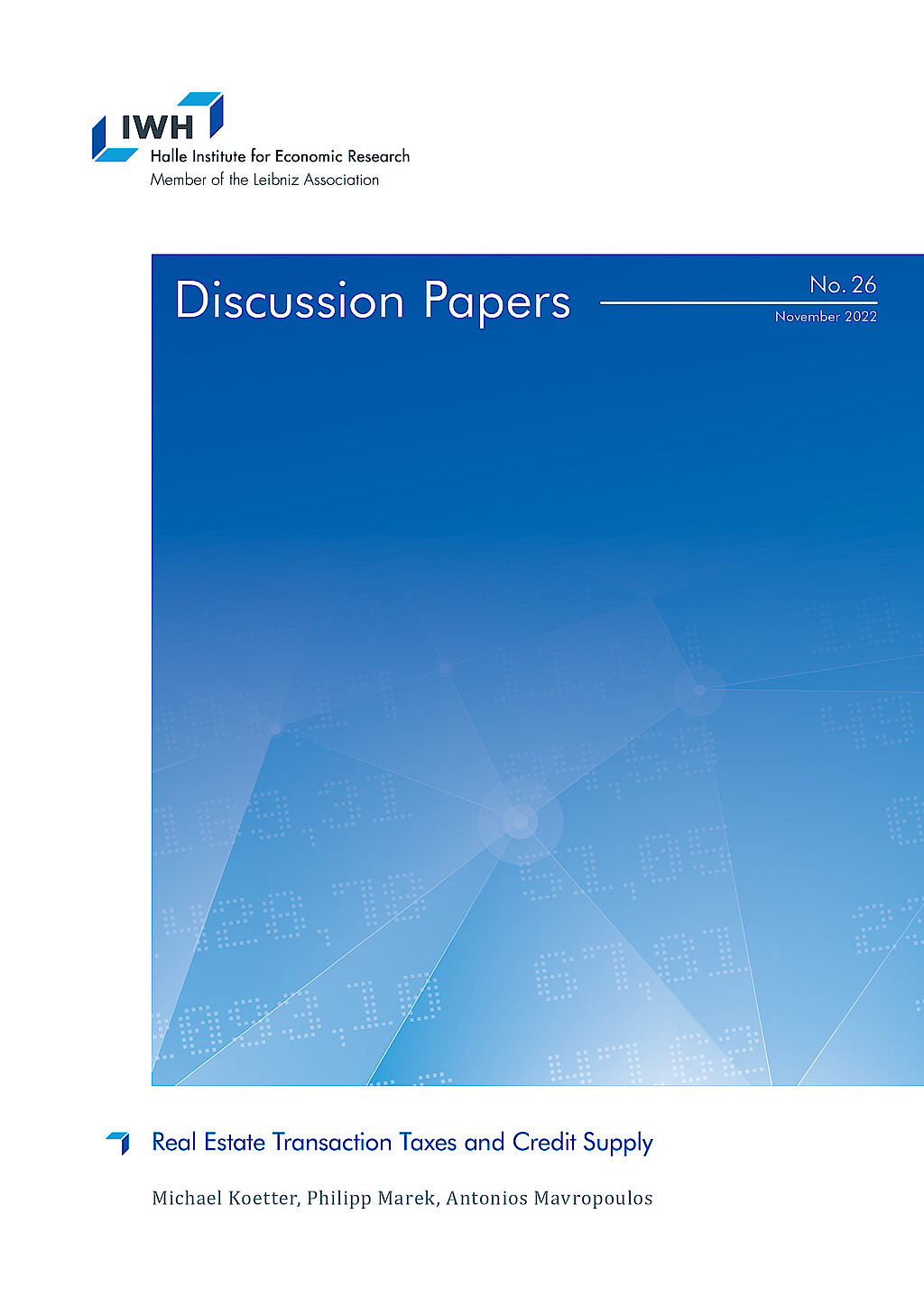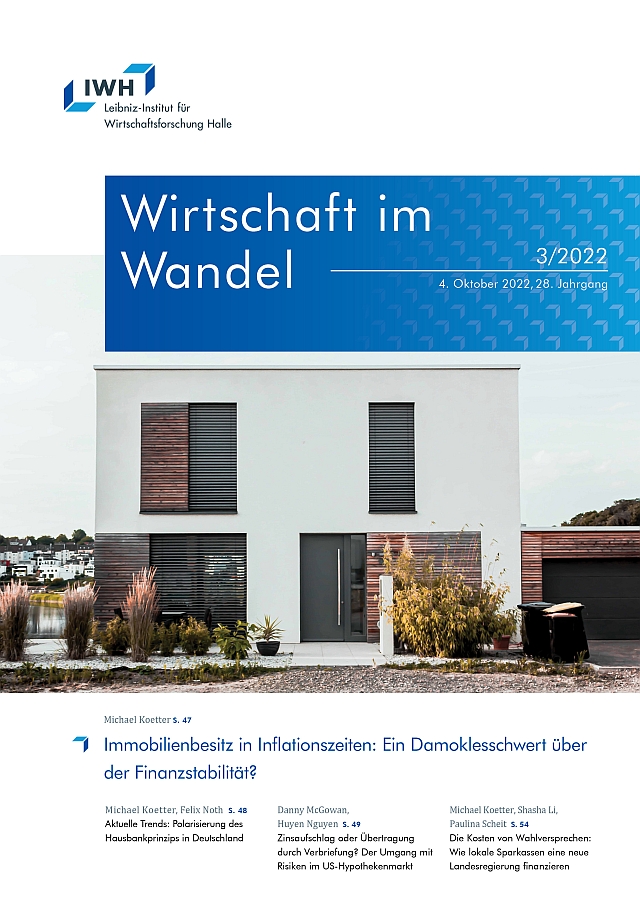IWH European Real Estate Index (EREI)
The IWH European Real Estate Index is a new dataset that illustrates developments in the European real estate market. Besides quoted (listing) prices, our data allows users to assess supply-side depth (number of listings) as well as market liquidity (dwell time). The dataset combines data originally sourced by the IWH as well as data for Germany from a project by RWI Essen (doi.org/10.7807/immo:redx:v3). EREI data is available in a monthly frequency, aggregated at the NUTS-3 level. Please refer to IWH Technical Report 1/2025 for technical details and coverage.
DOI: 10.18717/erei1
Data and Methods

European Real Estate Index (EREI) 2025
in: IWH Technical Reports, No. 1, 2025
Abstract
<p>This Technical Report documents the construction and coverage of the IWH European Real Estate Index (EREI). Since 2018, we have used machine-learning methods to collect monthly listings of residential real estate available for sale or rent in up to 20 European countries. The Technical Report documents the cleaning and selection process and describes the data regarding coverage, moments, and frequencies to construct the EREI.</p>
Data Access
The IWH provides external researchers with this data for non-commercial research purposes only. We grant access upon application.
Please complete the application form with your personal data and a detailed research proposal, which documents your research interest. Based on this information we will issue a usage agreement. Please note our terms of use.
For further questions, please contact: fdz@iwh-halle.de.
Publications

European Real Estate Index (EREI) 2025
in: IWH Technical Reports, No. 1, 2025
Abstract
<p>This Technical Report documents the construction and coverage of the IWH European Real Estate Index (EREI). Since 2018, we have used machine-learning methods to collect monthly listings of residential real estate available for sale or rent in up to 20 European countries. The Technical Report documents the cleaning and selection process and describes the data regarding coverage, moments, and frequencies to construct the EREI.</p>

European Real Estate Markets During the Pandemic: Is COVID-19 also a Case for House Price Concerns?
in: IWH Policy Notes, No. 3, 2022
Abstract
We use a new database on European real estate purchase and rental prices – the IWH European Real Estate Index – to document the relationship between staggered COVID-19 dynamics and real estate prices in 14 EU countries between January 2020 and December 2021. For most countries, we find no statistically significant response of monthly purchase and rental prices due to an increase of regional COVID-19 cases. For the UK we find that more COVID-19 cases depressed both purchase and rental prices significantly, but the economic magnitude of effects was mild during this sample period. In contrast, rents in Italy increased in response to hiking COVID-19 cases, illustrating the importance to consider heterogeneous crisis patterns across the EU when designing policies. Overall, COVID-19 dynamics did not affect real estate values significantly during the pandemic, thereby mitigating potential financial stability concerns via a mortgage lending channel at the time.

Real Estate Transaction Taxes and Credit Supply
in: IWH Discussion Papers, No. 26, 2022
Abstract
We exploit staggered real estate transaction tax (RETT) hikes across German states to identify the effect of house price changes on mortgage credit supply. Based on approximately 33 million real estate online listings, we construct a quarterly hedonic house price index (HPI) between 2008:q1 and 2017:q4, which we instrument with state-specific RETT changes to isolate the effect on mortgage credit supply by all local German banks. First, a RETT hike by one percentage point reduces HPI by 1.2%. This effect is driven by listings in rural regions. Second, a 1% contraction of HPI induced by an increase in the RETT leads to a 1.4% decline in mortgage lending. This transmission of fiscal policy to mortgage credit supply is effective across almost the entire bank capitalization distribution.

Kommentar: Immobilienbesitz in Inflationszeiten: Ein Damoklesschwert über der Finanzstabilität?
in: Wirtschaft im Wandel, No. 3, 2022
Abstract
Zu Beginn meines Studiums bot sich mir überall das gleiche Schauspiel: lange Warteschlangen anderer „Frischlinge“ vor dem neu renovierten WG-Zimmer samt modernstem 56k-Modem, fußläufig zu Uni und Lieblings-Café gelegen, mit happiger Miete zwar, aber irgendwie noch im finanziellen Lösungsraum. Eifrig bereitete ich tolle Argumente vor, warum gerade ich der optimale WG-Zuwachs sei, bevor ich mich einreihte. Schade, dass es dann meist jemand anderes wurde, aber nur kein Neid! Schade aber auch, dass die Suche nach einem Dach über dem Kopf für viele Menschen auch später frustrierend bleibt. Ein bezahlbares Zuhause zu suchen bleibt vielerorts ein von der Spaßsteuer befreites Unterfangen, ob nun für Berufseinsteiger oder die vierköpfige Familie, ob nun in Leipzig oder Köln.

Aktuelle Trends: Immobilienpreise in Deutschland steigen seit Pandemiebeginn im EU-Vergleich am stärksten
in: Wirtschaft im Wandel, No. 1, 2022
Abstract
Seit dem Beginn der Pandemie sind die Angebotspreise für privat genutzte Immobilien EU-weit um ein Viertel, in Deutschland bis März 2021 um 45% gestiegen. Die Preisdynamik ist auch außerhalb der Ballungszentren beachtlich.
Your Contact

Research Group Head
If you have any further questions please contact me.
+49 345 7753-851 Request per E-Mail


